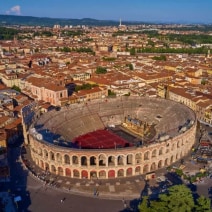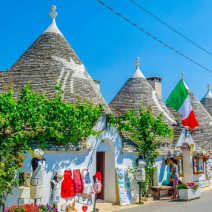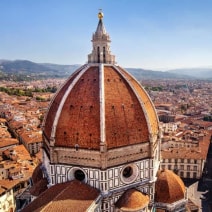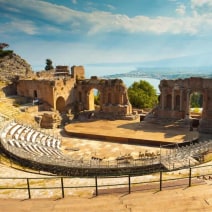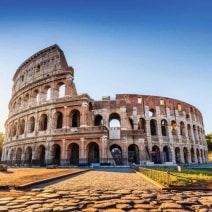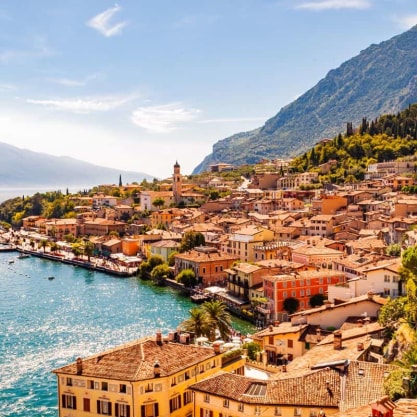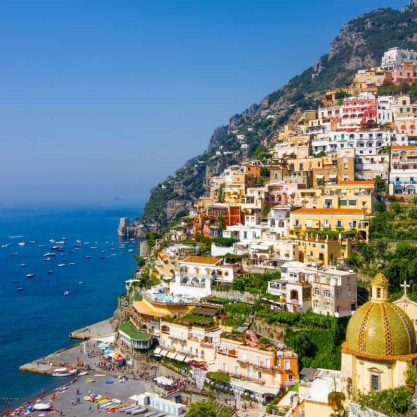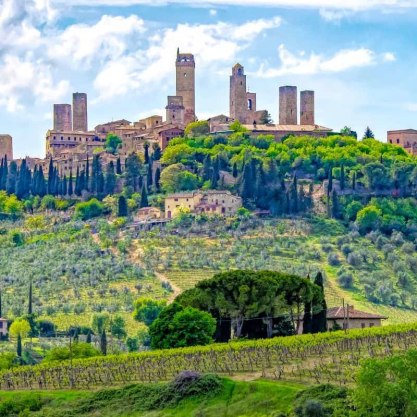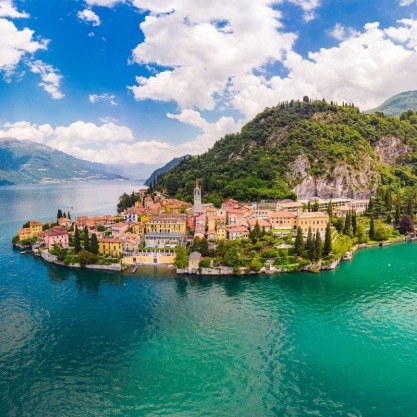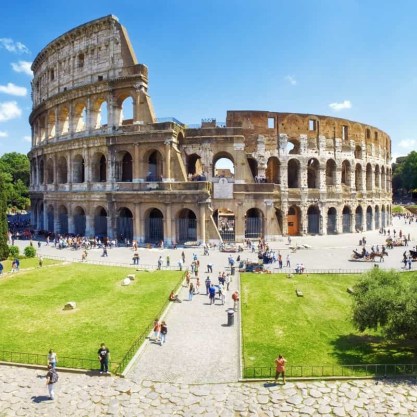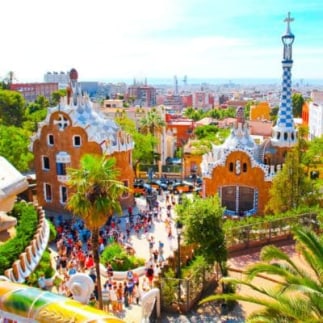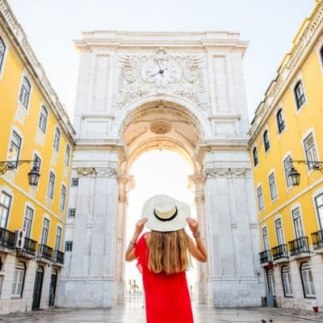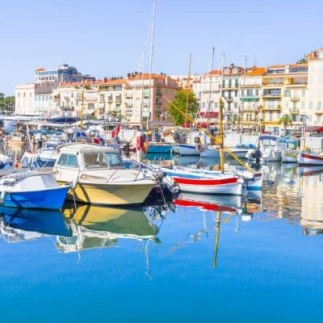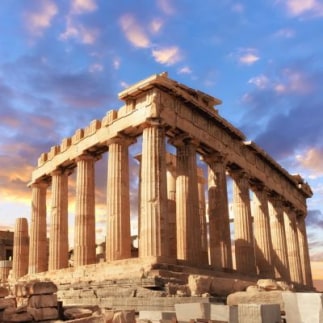Italy Travel Guide
Italy is a destination that continues to captivate holidaymakers with its blend of beautiful natural landscapes, historical sites, ancient cities, unique culture and world renowned cuisine.
Situated in the heart of the Mediterranean Sea, Italy shares open land borders with France, Switzerland, Austria, Slovenia, San Marino and Vatican City. The country has a population of 59 million, its capital and largest city is Rome, and the official language is Italian.
Italy’s history can be traced back to ancient Roman times as evident with the famous Colosseum in Rome and the town of Pompeii in Sorrento. Culture aficionados will love the region of Tuscany, with its rustic charm and countryside, along with its capital Florence, the birthplace of the Renaissance. In Venice, you'll be enchanted by its network of canals and stunning architecture. There is so much natural beauty to uncover in Italy as well, such as Mount Etna in Sicily, Lake Como, Lake Garda and the Amalfi Coast.
We've outlined some general information below that may be helpful to you when planning your next holiday to Italy. Wherever you decide to go, La Dolce Vita will be waiting for you.

Time Zone & Currency in Italy
Italy is one hour ahead of Greenwich Mean Time (GMT) throughout the year. The currency in Italy is the Euro.

Weather In Italy
Italy is renowned for its pleasant climate. The weather is mostly warm and dry in spring and autumn. Summers are warm and dry and winter days can be cool.

Reading For Your Trip To Italy
Romeo & Juliet by William Shakespeare
Angels & Demons by Dan Brown
Eat, Pray, Love by Elizabeth Gilbert
Best time to go to Italy
Italy is a beautiful country with a varied climate, and the best time to visit can depend on several factors, such as the region you plan to visit or the type of activities you have planned. We think the best time to visit is either Spring (April to June) or in the Autumn (September to November) when it's less crowded and the weather is cooler.
Top Tourist Attractions In Italy
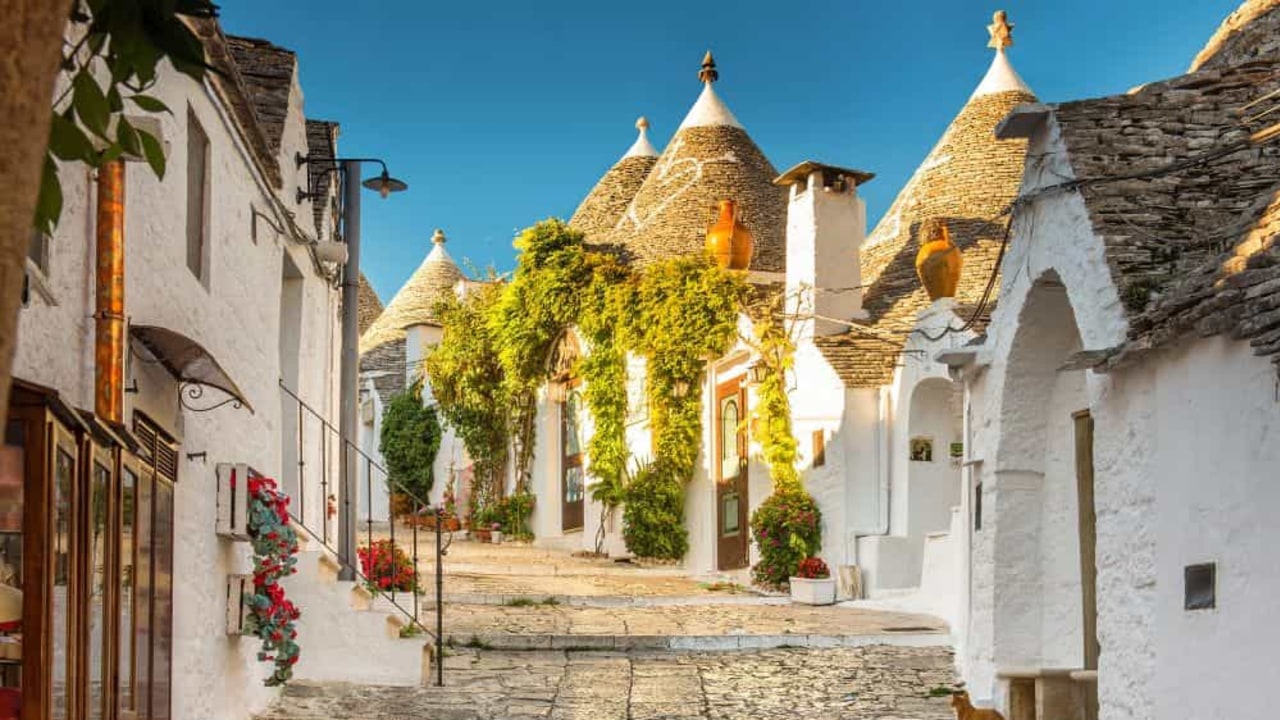
Top 20 places to visit in Italy
A country rich in art, culture, history, stunning landscapes with plenty of incredible of places to explore. From Italy's capital, the Eternal city is full of ancient sites and museums, to the natural beauty of Mount Etna in Sicily.
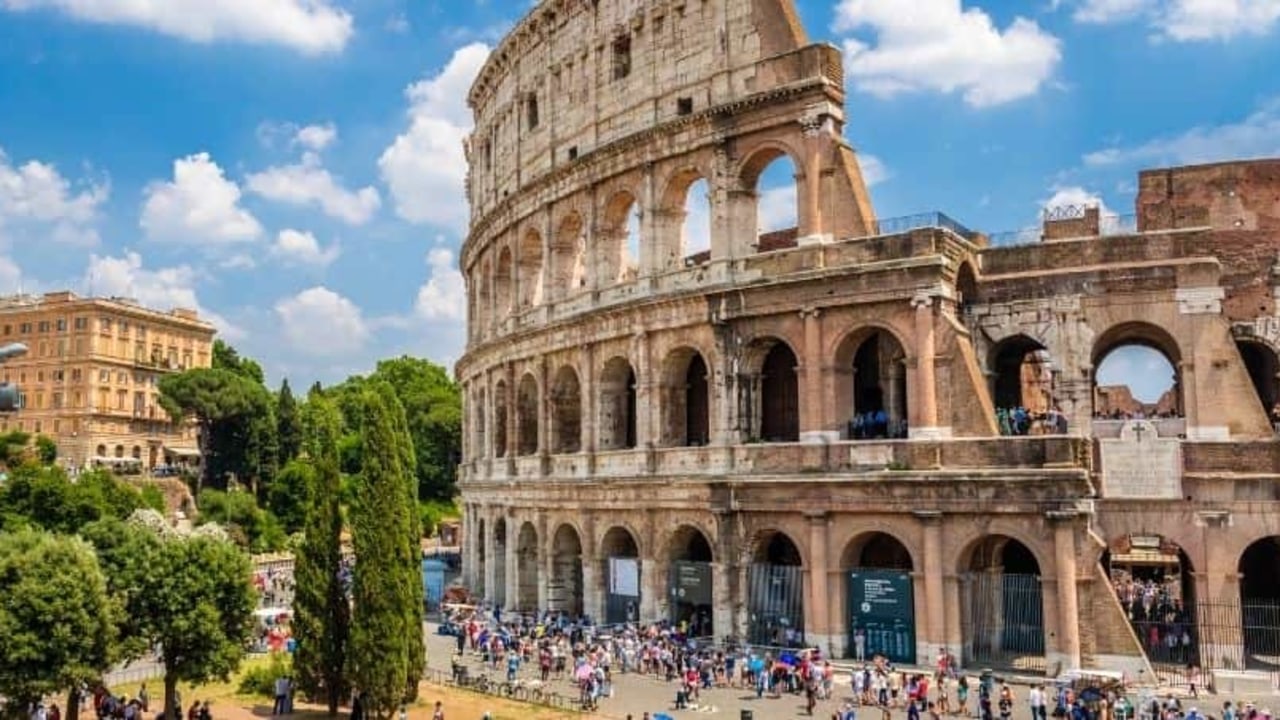
Top cities to visit in Italy you cannot miss
The top cities in Italy boasts its own unique attractions, landscapes, historical sites and culture. From the ancient ruins in Rome to the romantic canals of Venice, there's so much to uncover in this diverse country.
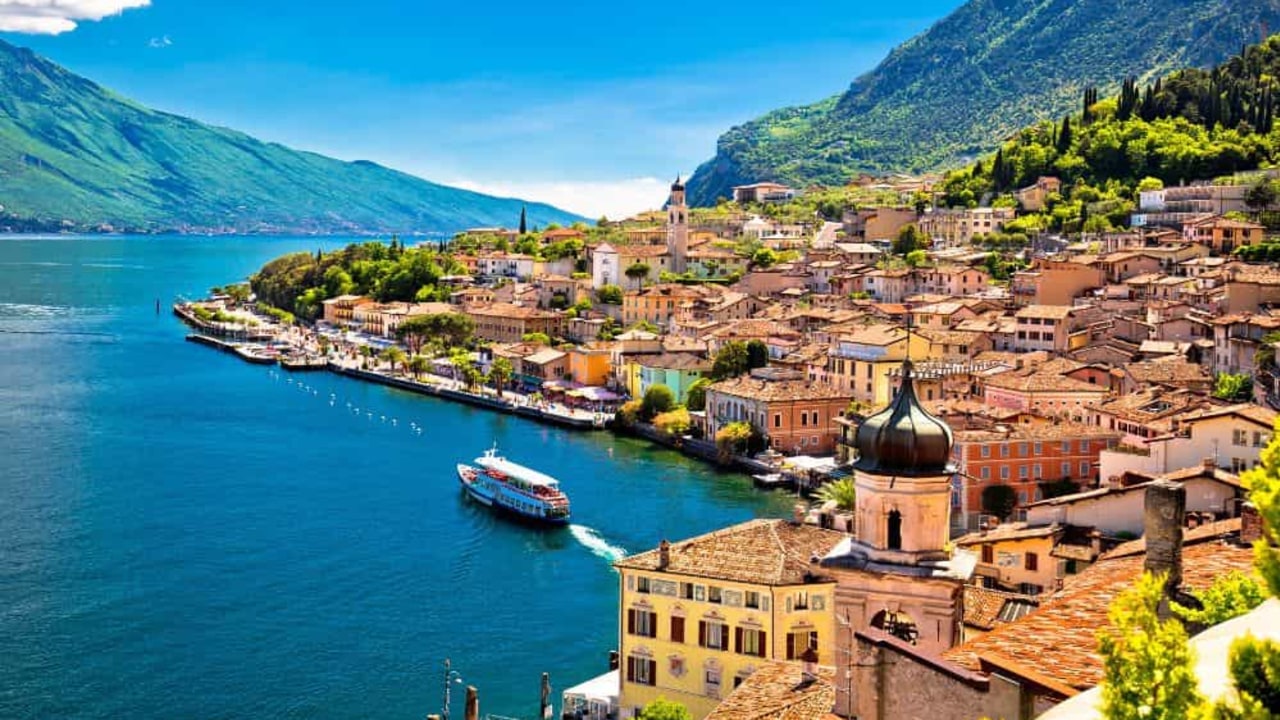
5 Best Lakes in Italy To Visit
Italy has a variety of lakes, each with their own unique charm, beauty and culture. From Lake Garda, the largest lake in the country, to Lake Como; both of which are surrounded by magnificent mountains and dotted with charming towns along their shores.
Food and drink in Italy
Brace yourself for some startling news – there is no such thing as Italian food! The Unification of Italy in the 19th century did not change much as each region still boasts its own culinary traditions and produce, reflecting the country’s history as a collection of independent states. In Sicily and the southern regions, the focus is on seasonal vegetables, seafood, and tomatoes, prepared with a simple and vibrant cooking style. In the north, meals are heartier, with rich cheeses, butter, and meat-based dishes. Every Italian region also has its own pasta shapes, from Tuscany’s rustic pici to Puglia’s distinctive orecchiette, each matched with a preferred sauce. Top dishes you’ll find across Italy include:
- Pizza Margherita: Naples' iconic pizza with tomato sauce, mozzarella, and basil, symbolising Italy’s colours.
- Tagliatelle al Ragù: Emilia-Romagna's rich meat sauce paired with fresh tagliatelle.
- Spaghetti alla Carbonara: Roman classic with guanciale, Pecorino Romano, eggs, and black pepper.
- Risotto alla Milanese: Creamy saffron-infused rice dish from Milan.
- Tiramisu: Layers of coffee-soaked biscuits, mascarpone, and cocoa, Italy’s favourite dessert.
One of the world's top wine producers, there are incredible wine regions in Italy offering a diverse range of wines, including Montepulciano d'Abruzzo, Barolo, and Chianti.
Italy Travel Guide FAQs
Can I use my bank cards while holidaying in Italy?
Most bank cards can be used in Italian ATMs. Most retailers accept major debit and credit cards. We recommend you contact your bank/card provider to check if charges will apply.
Can you give a brief history of Italy?
Italy has a rich and fascinating history, the heart of the Roman empire ruled from here for over a 1000 years and its relics are still present throughout the country. Before the Unification of Italy in 1861, the country consisted of several independent states and to this day when it comes to food, Italy remains in this era as each region has still retained its own individual cuisine and cooking traditions. The early 20th century saw the rise of fascism in Italy which was ruled by Benito Mussolini between 1922 and 1943. After the fall of Mussolini, fascism and WW2, the country experienced a period of strong economic growth and social reforms, known as the ‘Italian economic miracle.’
Do I require a holiday visa to travel to Italy?
All EU/EEA nationals must present their valid passport on arrival in Italy. A visa is not required for EU passport holders. For information on visa requirements for non-EU citizens, we recommend you contact the Italian embassy or consulate in your country of residence. UK citizens can find further information by visiting www.gov.co.uk
What advice do you have for tipping in restaurants while in Italy?
In restaurants, a tip of 5-10% is welcomed, but not obligatory. A cover charge (called ‘Pane e coperto’ ) will be added to your bill in some restaurants. This incorporates the table setting with a bread basket and doesn’t include any gratuities. However, if you see ‘servizio incluso’ on your bill, then service charge is included. For table service in bars and cafes, a few coins (50c +) will be appreciated by your servers.
What should I pack for my holiday in Italy?
- Comfortable walking shoes: On some of our tours there can be periods of walking and standing, sometimes on cobbled or uneven surfaces.
- A scarf: In many places in Italy when visiting religious sites it's expected to cover bare shoulders and you can easily take this on and off.
- Sunscreen with high SPF: Italy can get very hot and it's vital to protect yourself.
- A day bag: So you can carry essentials like water, sunscreen and your camera during guided excursions.
What kind of plugs / sockets are used in Italy?
The most common plug type is the continental two-pin round, although some hotels have installed 3-pin square sockets. We recommend you pack an adaptor, just in case.
Italy Travel Information
- For up-to-date information regarding entry into Italy please see: www.dfa.ie
- Official Italian Tourism Board: www.italia.it
